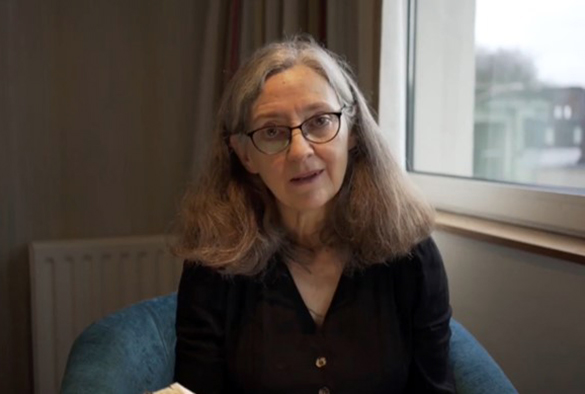
The University of Liverpool's Institute of Irish Studies is delighted to announce Human Chain: Poets on the Poetry of Seamus Heaney, an online event dedicated to the life and work of the Nobel Laureate Seamus Heaney.
The Institute of Irish Studies event is supported by the Estate of Seamus Heaney, which kindly endorsed the Institute's Annual Seamus Heaney Lecture. Last year's inaugural lecture was delivered by Professor Louise Richardson, Vice-Chancellor of the University of Oxford. As public events are currently not possible the Institute of Irish Studies will instead publish a video of readings and reflections on Seamus Heaney by established poets and writers, with a reading by the actress, Bríd Brennan.
The enormity and stature of Seamus Heaney's work has been witnessed recently in two ways. In an interview in the Cork Examiner in 1972, referring to the Troubles in Northern Ireland, Heaney had remarked "If we winter this one out, we can summer anywhere". That line has become something of a motto during the pandemic and has appeared in wall murals, radio and TV programmes and across Twitter as both a sign of both hope and resilience. President Elect Joe Biden summoned lines for Heaney's The Cure at Troy, during his Democratic Party nomination acceptance speech and when awarded the Presidential Medal of Freedom quoted from Heaney's From the Republic of Conscience. Only a poet as recognised globally as Seamus Heaney could circulate from the streets of Ireland to the White House.
Professor Peter Shirlow, Director of the Institute of Irish Studies, stated: "Given the recent announcements regarding successful Covid-19 vaccine trials there is renewed hope that we can return to the days when the Institute of Irish Studies will be able to once again welcome you, our audience, in person.
"We hope that in the meantime you will enjoy Human Chain: Poets on the Poetry of Seamus Heaney which seeks to capture the thoughts of five internationally renowned poets on whom Heaney's work has had a profound influence."
- Bernard O'Donoghue opens with a reading of A Call and reflects upon the idiolect of Heaney's poetry and his place within both British and Irish canons.
- His contribution is followed by Gail McConnell for whom Heaney's poem Fodder has provided the wordscape required for the development of her own collection Fothermather.
- The Institute of Irish Studies' alumni Seán Hewitt reads The Riverbank Field and accounts for Heaney's unique ability to bring the mythic and the spiritual down to earth and to ground them in the everyday of lived experience, something central to his debut collection Tongues of Fire.
- Tara Bergin's reading of Heaney's prose brings into focus Heaney's talent as a critic and essayist and outlines his example as a model for other poets to follow. She sees his advice to "understand our own minds" as something of a release to enable her to find her own poetic voice.
- Finally, Yousif M. Qasmiyeh discusses Heaney in translation and the open nature of his incomplete rhymes, before recalling his own first encounter with Heaney in a Palestinian refugee camp in Lebanon.
The Institute of Irish Studies would also like to thank celebrated Irish actress, Bríd Brennan (pictured) who provides additional readings of the late poet's work from a personal selection.
The readings are framed with a message of welcome from Catherine Heaney and a response by the Institute of Irish Studies' lecturer, Dr Eleanor Lybeck.
With its joint patrons HRH the Prince of Wales and the President of Ireland, the Institute of Irish Studies exists to promote understanding between, and a reflection of, the shared cultures on these islands and, as such, Seamus Heaney holds a special place in its teaching, research and practice.
Born and raised in County Derry, Seamus Heaney was the author of more than 20 volumes of poetry, translations and criticism and is widely recognised as one of the major poets of the 20th Century. He won the Nobel Prize in 1995 "for works of lyrical beauty and ethical depth, which exalt everyday miracles and the living past". His life, as a poet who wrote in English and had a truly global impact serves as reminder of the best of Irish culture at home and abroad. As Catherine Heaney said, she was "surprised and moved by the personal nature of these stories" and extends her invitation for you to share them also.






